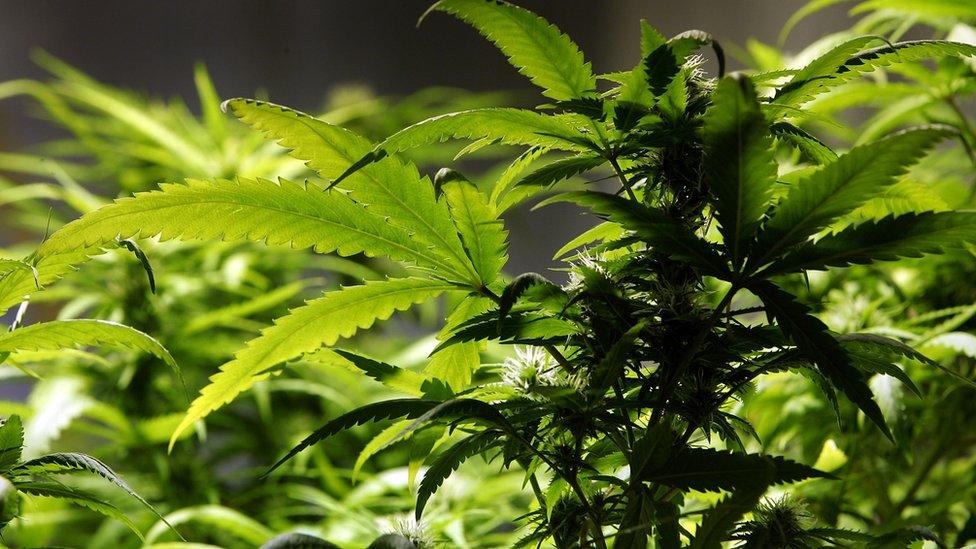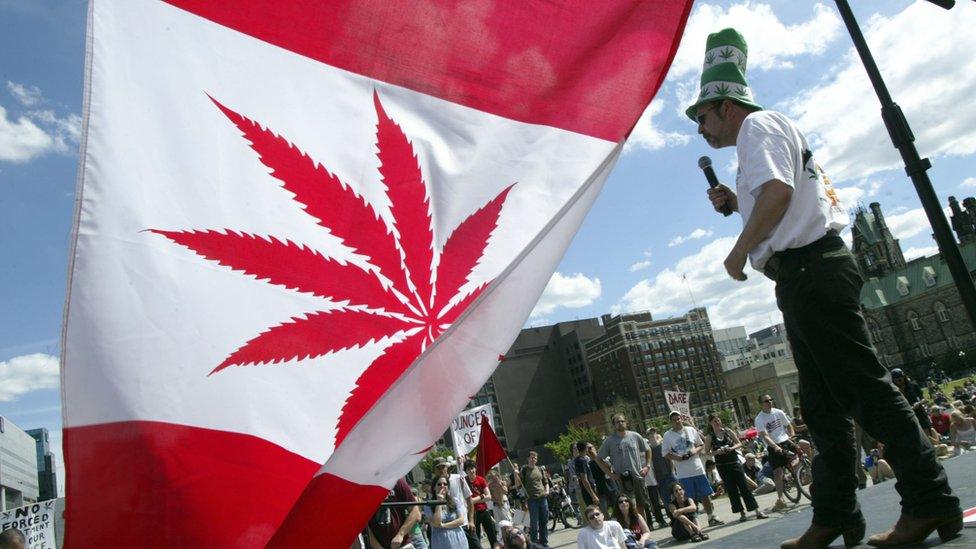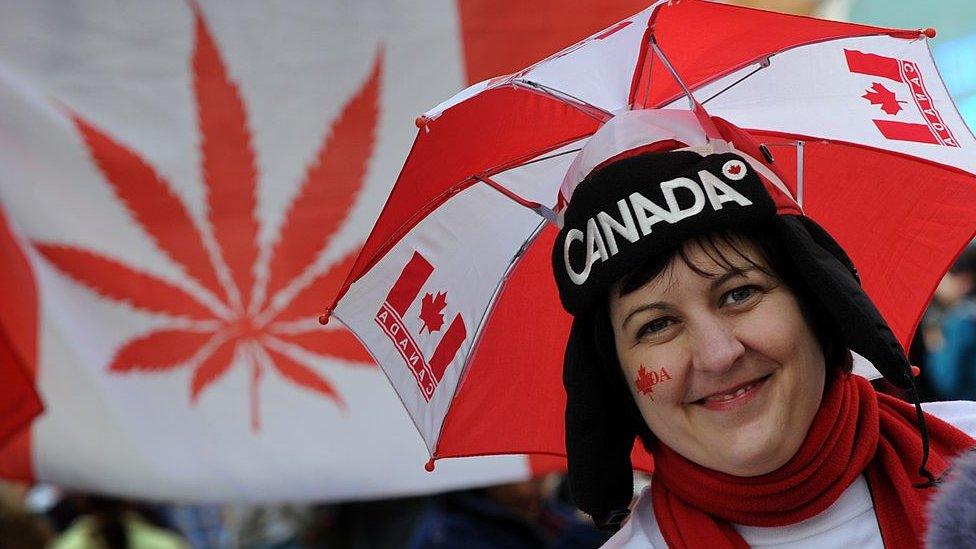Canada, provinces reach tax deal for recreational marijuana
- Published

Canada plans to legalise and regulate recreational marijuana by July 2018
Canada's provinces will be getting the lion's share of the lucrative taxation revenues from legal cannabis.
The provinces have agreed in principle to a two-year tax sharing agreement that gives them a 75% cut of those eventual revenues.
Canada's governing Liberals are planning to legalise and regulate recreational marijuana by July 2018.
Provinces had rejected an earlier proposal to share the tax revenues 50-50 with the federal government.
In October, Canadian Prime Minister Justin Trudeau proposed a 10% federal excise tax on recreational cannabis products that should not exceed $0.78 (C$1.00; £0.58) per gram, or 10% of the sale price.
He also proposed that the revenues be shared equally between the two levels of government.
Provinces rejected that proposal, arguing they would bear most of the costs related to setting up the distribution framework for recreational marijuana, regulating the drug, as well costs related to policing and public health.
Each province is responsible for setting out the framework for the distribution of cannabis within its territory, and for regulating its distribution and retail sales.
After meeting with his provincial and territorial counterparts on Monday, federal Finance Minister Bill Morneau announced the sweetened revenue-sharing deal.
Under the agreement, the federal government will keep a 25% share to a maximum of $78m per year. Any additional revenue above will be redistributed to the 13 provinces and territories.
The federal government is also suggesting the ideal total final price for a gram of legal recreational marijuana should be around$8, in order to elbow out black market sales.
Canada's eventual retail marijuana market has been estimated to be worth $3.7bn to $5bn.
- Published13 April 2017

- Published13 December 2016
